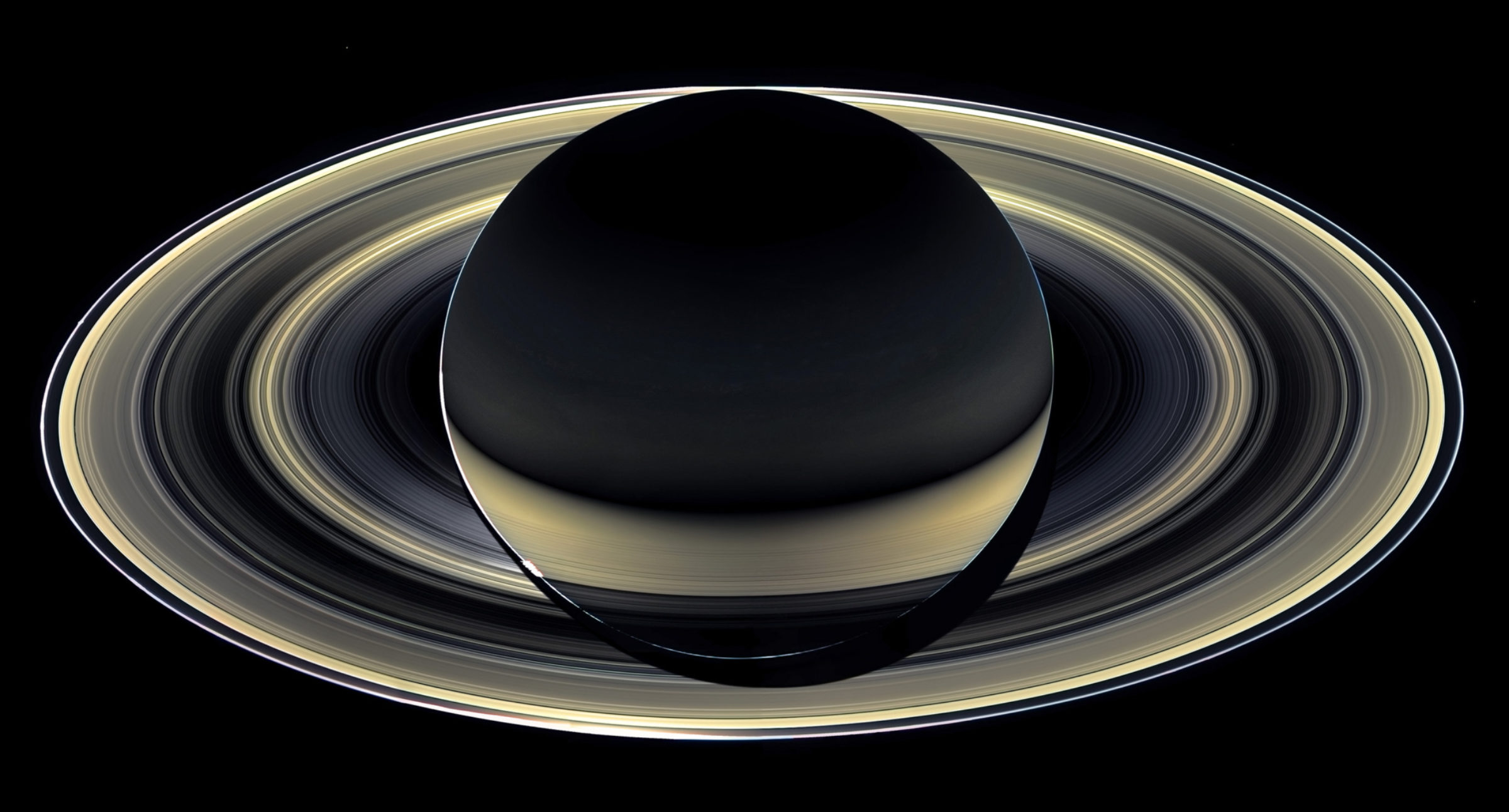Ian Regan • May 16, 2017
Cassini's 'Grand Finale' Portrait of Saturn
In the early hours of April 13, 2017, a veteran NASA probe captured this breathtaking and unique visage of the Saturnian system as it coasted through space in the shadow of the gas giant.

Using its Wide-Angle Camera (part of the Imaging Science Subsystem), Cassini snapped 96 individual digital photos: these images consisted of Red, Green, and Blue-filtered frames, covering a total of 32 ‘footprints’. These 32 color frames were painstakingly combined to produce the final mosaic. Cassini took nearly four hours to collect these data. In that time, the spacecraft was slowly cruising away from the planet, en route to apoapse (the point farthest from Saturn in any given orbit) of Revolution 269. The distance to the planet increased by 82,000 km in that time, and in the end, the distance to the cloud-tops equaled 650,040 km.Image: NASA / JPL-Caltech / SSI / Ian Regan
Using its Wide-Angle Camera (part of the Imaging Science Subsystem), Cassini snapped 96 individual digital photos: these images consisted of Red, Green, and Blue-filtered frames, covering a total of 32 ‘footprints’. These 32 color frames were painstakingly combined to produce the final mosaic.
The veteran spacecraft took nearly four hours to collect these data. In that time, Cassini was slowly cruising away from the planet, en route to apoapse (the point farthest from Saturn in any given orbit) of Revolution 269. The distance to the planet increased by 82,000 km in that time, and in the end, the distance to the cloud-tops equaled 650,040 km.
All components of the main ring system are visible, seen here illuminated from behind: a vantage point technically known as a ‘high-phase angle’. In this geometry, a peculiar reversal happens: the thinner and more translucent rings shine out brightly, while the more opaque and thicker regions are relatively dark.
Only two moons — Janus and Mimas — can be picked out in this uncalibrated and compressed data, in addition to a red-giant star in the constellation of Gemini: Tejat (μ Gem).
For more information about the Cassini-Huygens mission visit saturn.jpl.nasa.gov and www.nasa.gov/cassini. The Cassini imaging team homepage is at ciclops.org.
Support our core enterprises
Your support powers our mission to explore worlds, find life, and defend Earth. You make all the difference when you make a gift. Give today!
Donate

 Explore Worlds
Explore Worlds Find Life
Find Life Defend Earth
Defend Earth

